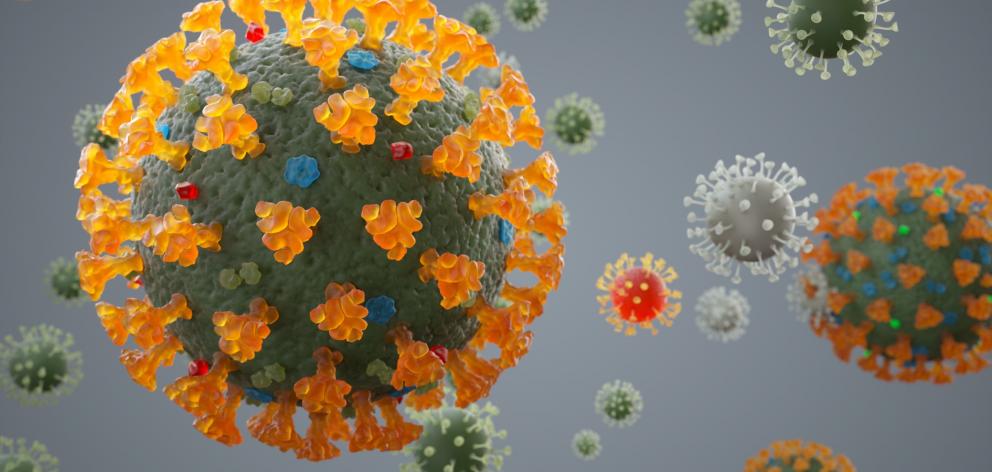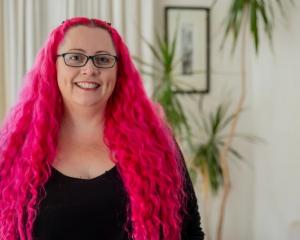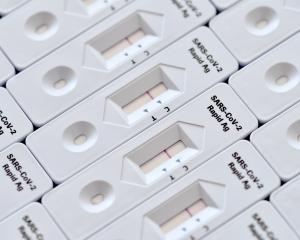
During New Zealand’s first surge in Covid-19 cases, the Southern District Health Board region had the highest per-capita infection rate in the country, 66 cases per 100,000, more than twice the national average of 30 per cases 100,000 people.
Officially, 217 of New Zealand’s cases of the disease were recorded in Otago and Southland, and two of those people died from the disease.
In the middle of last year, the Southern Community Laboratories team collected and tested blood samples from 1214 people, shortly after the last cases of community transmission in the region.
Of those tested, 78 had had a positive Covid-19 test, nine were probable cases, and 1127 were regarded as "higher risk" people, either due to being front-line health workers or living in Queenstown, which had an outbreak of community cases.
The findings, newly published in international journal Pathology, were a mixed bag.
Testing of blood samples from those who had not had a positive Covid-19 test suggested that nine of them had, in fact, had the disease.
However, seven of the nine possible cases tested, who were counted by the Ministry of Health as having had the disease, returned a negative result for Covid-19 infection.
"It is likely that at least some of these individuals did not have infection ... further testing of New Zealand’s remaining 341 cases may be warranted."
The authors said it was possible that the three-month delay before collecting the blood serum might have affected the test’s sensitivity, but they felt that was unlikely.
Of the nine extra infections detected by the testing, all had epidemiological risks, which included recent overseas travel and/or being a close contact with a known case.
Southern health officials have always suspected that there were more Covid-19 cases in the region last year than reported, and that the decision to put New Zealand into Alert Level 4 lockdown in March 2020 meant many of those cases were contained in personal bubbles and not spread into the community
"Given the imperfect sensitivity and unknown prevalence among the tested population in our region, it is difficult to estimate the true number of cases of infection that may have been missed," the article said.
However, it was plausible that the testing regime in place at the time had identified the majority of cases in the South and that the swift introduction of isolation of patients had limited community spread.
The southern region had two major clusters, one associated with a wedding held at Bluff and one linked to a cattle conference in Queenstown.
There were also close shaves, which included a case linked to Logan Park High School in Dunedin and two nurses at Lakes District Hospital in Queenstown testing positive.
The 13 authors of the article, who included SDHB medical officer of health Susan Jack and University of Otago immunologist James Ussher, said while the study suggested there were indeed missed cases in the region, it was heartening that there was little evidence of undetected infection in those considered at the highest risk.
Meanwhile, the Ministry of Health yesterday confirmed six new cases of Covid-19 in managed isolation and quarantine over the previous two days.
There were no cases of community transmission.
Wastewater testing picked up a weak positive to Covid-19 in Queenstown last week, but the water had since tested negative,
A ministry spokesman said the positive result was probably a recovered patient still shedding the virus.
Comments
No ^&%t Sherlock. Does anyone else remember trying to get a Covid test but being rebuffed because they had not been travelling? Thank goodness for the lockdown or we would have been in deep doodoo.
No, but I do remember trying to get an antibody test and being rebuffed because it didn't fit the narrative.
Apparently we don't want people to be able to prove they have immunity, we just want people to prove they've been part of a trial vaccination programme.
And because of the lockdown, we are in deep doodoo economically.












